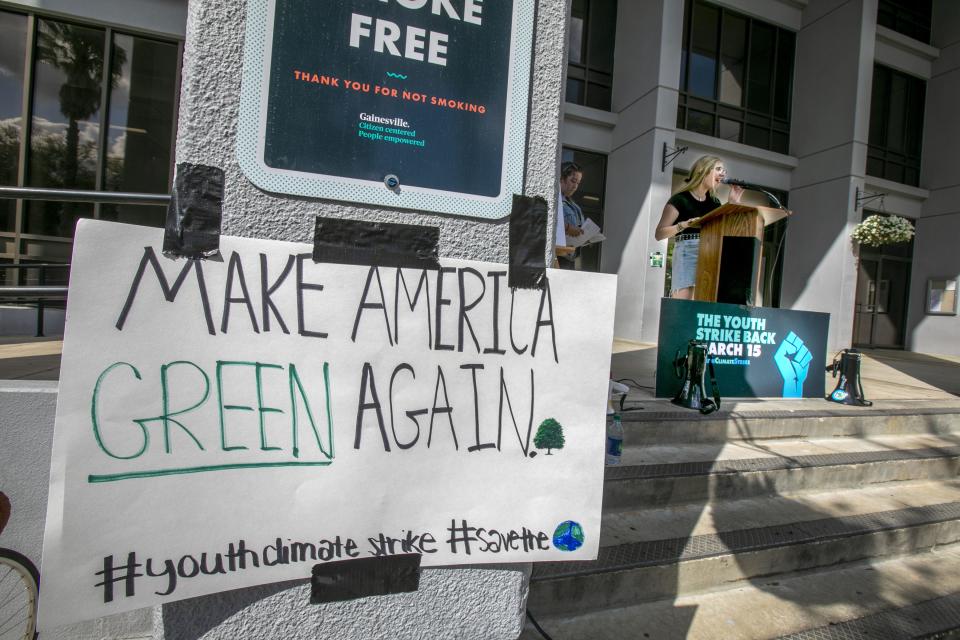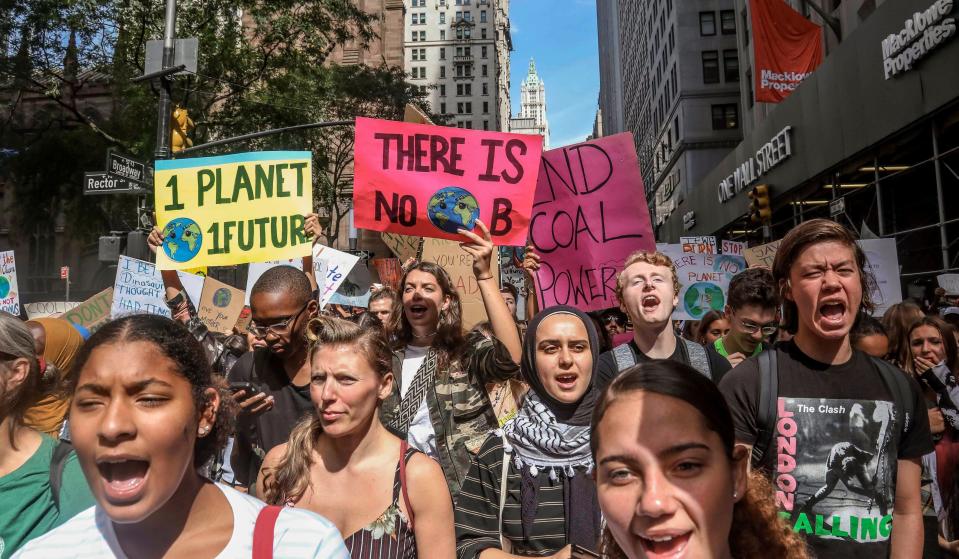Gainesville seeks community input for developing Climate Action Plan
Reeling from a summer of record-high heat, Gainesville has not been spared by climate change — an environmental issue that impacts every corner of the city’s population, wildlife and greenery.
Gainesville is now in the developing phase of its Climate Action Plan — with a draft expected to be finalized by October 2024. The plan, which has been in the works since February, aims to keep the city on track to reach its sustainability goals, said Dan Zhu, the city’s first chief climate officer.
In 2019, Gainesville passed a resolution committing toward net-zero greenhouse gas emissions by 2045, and in 2019, it pledged to be zero waste by 2040. The city also joined Race to Zero in 2021, a global campaign that supports local efforts to reduce carbon emissions.
“The purpose of the plan is to have actionable items for our local government or for neighbors that we can follow,” Zhu said.

The Climate Action Plan will be divided into two sections: mitigation and adaptation, a two-pronged climate change solution. Mitigation, or reduction, involves efforts to reduce the release of greenhouse gasses into the atmosphere, while adaptation involves adjusting to the future climate and its future risks.
Each section of the plan will then be split into at least five teams made up of city and county staff, University of Florida and Santa Fe College faculty and other specialists. Together, team members will work toward tackling a particular environmental challenge, Zhu said.
For mitigation, teams will include transportation and mobility sources; residential, commercial and industrial energy; solid waste management; water and wastewater; and local government operations. For adaptation, teams include extreme heat response; food system agricultural production; community engagement; climate analysis and modeling; and funding and resources allocation.
Energy, transportation and waste were three of the most important categories the city considered when drafting teams for the Climate Action Plan, Zhu said. In 2019, 74% of Gainesville’s greenhouse gas emissions came from energy, with transportation and solid waste following as the largest emitters, according to an inventory completed in 2021.

Community engagement is also extremely important to Gainesville’s development of a Climate Action Plan, Zhu said.
“Our belief is that we need to have a really good understanding of the needs of our community, so that we can create a plan to address those needs,” she said.
One key way the city has achieved this is through the creation of a Climate Action Survey, a virtual series of questions intended to determine individuals’ understanding of the impacts of climate change, as well as their interest in reducing carbon emissions.
The survey, which is open to all Gainesville residents, prompts individuals to rank their understanding of and concern about climate change; identify environmental issues they or someone they know has been impacted by; and select the issue they’re most interested in providing input on during the development of the Climate Action Plan. It also includes a set of demographic questions.
More: DeSantis names 3 to join the new GRU board. None live in city limits as required by law
In addition to monitoring survey results, Zhu and the city have been meeting regularly with local environmental organizations like the Citizen Climate Advisory Committee, League of Women’s Voters and Sierra Club — community support Zhu is fortunate to have, she said.
Jay Rosenbek, co-chair of the Alachua County League of Women Voters’ Natural Resources Committee, first learned about the Climate Action Plan during one of these meetings.
A systematic plan addressing how Gainesville will reduce greenhouse gas emissions, how these reductions will be measured and how the city will overcome barriers as they arise is beneficial to the entire region, Rosenbek said.
Gainesville, he said, is a progressive community.
“It’s a community that attends to issues like equity and quality of life,” he said, “and both equity and quality of life are affected by our greenhouse gas emissions — associated with energy production, with transportation, with our built environment.”
More: Business roundup: New breakfast spot coming soon? Bookstore returning to Gainesville
For those who understand that quality of life is influenced by the changing climate, Rosenbek said, there’s a desire to support political activities that preserve Gainesville’s resilience as a community — activities that include the formation of a Climate Action Plan.
But backing local efforts like the Climate Action Plan can also be a helpful antidote to eco-anxiety, Rosenbek said, a growing trend he’s noticed over the past few years.
Eco-anxiety, or climate anxiety, refers to chronic fear spurred by the “seemingly irrevocable impact of climate change” and concern for the future, according to the American Psychology Association.
“Many folks … are often frustrated, made anxious, by the seeming hugeness of the problem — the seeming intractability of the problem,” Rosenbek said. “So, a local effort like contributing to the Climate Action Plan makes what could be huge something more doable.”
For concerned residents — and young people especially — the key to becoming involved in efforts like these is communication, he said.
Environmental advocates must communicate in a way that prioritizes listening over talking, he said, but there also needs to be a desire from the community to seek out issues, information and opportunities to contribute.
“It’s simply impossible for a Dan Zhu or a city commissioner or a city manager or a League president to make individual appeals to a wide number of individuals,” Rosenbek said. “There has to be, it seems to me, a willingness on the part of other folks.”
Residents who want to learn more about Gainesville developing Climate Action Plan can do so on the city’s website, where they can also fill out the Climate Action Survey in English or Spanish.
This article originally appeared on The Gainesville Sun: Gainesville seeks community input for Climate Action Plan

